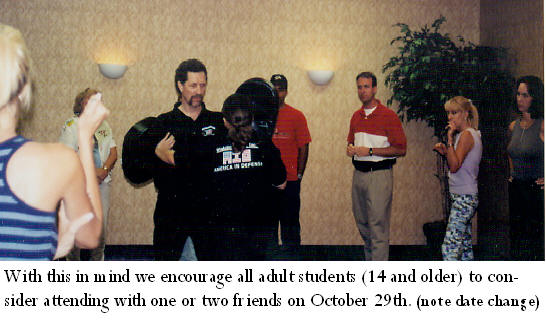
SEPTEMBER NEWS
The Development of Confidence with Competence
For thirty years Florida State University psychology professor Roy Baumeister attempted to document the value of positive self-esteem in children, only to experience one of the biggest disappointments of his career. The confidence that the children displayed was not matched by an appropriate level of competence. “Over-praising gives children a false view of reality” argues Joel Turtel in his new book “Public Schools, Public Menace”. Citing studies comparing Americans and Koreans, Turtel noted that the Americans’ self-esteem was higher, but the Koreans’ math scores were higher.
Baumeister now advocates a balance of praise and criticism. “Parents used to worry about spoiling their kids, and so they criticized lavishly and withheld praise. Now they worry about self-esteem, so they withhold criticism while praising lavishly.” A balance between praise and correction is an essential ingredient in the process, as is the timing of both praise and correction. By timing I mean looking for when we can catch a student performing correctly and offer immediate appropriate praise. This connects the praise with all of the elements involved in the correct behavior. Similarly, when a correction is indicated it should be immediate and specific. Where possible corrections should be sandwiched between positive statements, e.g. “Bobby, I like you, but I don’t like what you just did. You must not kick other children in the class. I’ll need to take this stripe off your belt and you will have to earn it back. Show me that you can do better.” While removing a stripe is a fairly rare occurrence in class, it is a powerful tool for correcting behavior that is out of line.
“If you go back to the children of the World War II generation, there was more of a work ethic,” says Robert Mackey, head tennis pro at C.B. Smith Park. When praise and rewards are freely given without being timed to connect with any specific behavior or attitude, children learn to seek rewards that are not dependant on performance. This undermines the development of a work ethic. In all of the classes here at UKC we try to time the reward of a stripe, with an improved level of skill, attitude and performance. The reward then connects with the performance in the student’s mind and body, and builds confidence in their competence.
Many programs have been designed to intervene in the lives of troubled children to help them to straighten out. “Boot Camps” and “Brat Camps” abound, and can often be successful. For adults there is always jail, though that program seems less successful. Our program is designed primarily for regular students that do not necessarily need a major intervention. Rather, they can benefit from a regular training regimen that rewards improvements in the physical skills of balance, coordination, flexibility, agility and fitness, encourages the development of emotional balance and self-control, and improves perceptual and cognitive skills by teaching visualization, timing and reflexive movement. Along with the being warm and empathic, our instructors are trained to be genuine when rewarding or correcting students. To be a genuine Black Belt you must develop authentic skills. The physical, emotional and psychological competence that students develop through training gives them a level of confidence that is based on reality, rather than on empty praise.
© Shihan Robert H. Mason 2005
We often get requests for Self-Defense classes, as distinct from our usual programs. Sensei Mason is planning a class of this kind for Saturday October 29th from 12:15 - 4:15 pm. While this class format can be useful, both as an introduction for new students, and as a focused workshop for established UKC members, its value is somewhat limited unless it is followed by regular training. All of our classes develop self-defense skills, particularly as they have to integrate with breathing and centering techniques. One of the problems that arise with a “quick-fix” self-defense class relates to adrenaline shock. Without regular training most people will inhale, freeze and go into adrenaline shock when they are suddenly surprised. With training students learn to exhale, center themselves and focus, to allow their adrenaline to be channeled into action.
